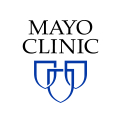Safety and Efficacy Study of Teduglutide in Subjects With Short Bowel Syndrome
| Status: | Completed |
|---|---|
| Conditions: | Gastrointestinal |
| Therapuetic Areas: | Gastroenterology |
| Healthy: | No |
| Age Range: | 18 - Any |
| Updated: | 4/21/2016 |
| Start Date: | April 2004 |
| End Date: | July 2007 |
A Study of the Efficacy and Safety of Teduglutide in Subjects With Parenteral Nutrition-Dependent Short Bowel Syndrome
The purpose of this study is to evaluate the efficacy, safety, tolerability, and
pharmacokinetics (PK) of teduglutide compared with placebo in subjects with parenteral
nutrition (PN)-dependent short bowel syndrome (SBS).
pharmacokinetics (PK) of teduglutide compared with placebo in subjects with parenteral
nutrition (PN)-dependent short bowel syndrome (SBS).
Teduglutide is an analog of glucagon-like peptide 2 (GLP-2), a naturally occurring hormone
that regulates the growth, proliferation, and maintenance of cells lining the
gastrointestinal tract. Teduglutide has been shown in animal studies and previous human
clinical trials to increase the size and number of these cells, thereby increasing the
absorptive surface area of the intestines.
The multicenter, double-blind, international Phase III trial will randomly assign
approximately 80 patients to receive daily subcutaneous injections of 0.05 milligrams or
0.10 milligrams of teduglutide per kilogram of body weight, or a placebo. Dosing will
continue for a period of six months. The primary endpoint in the study is a reduction in the
use of intravenous feeding, which is often required to sustain life in patients with SBS.
that regulates the growth, proliferation, and maintenance of cells lining the
gastrointestinal tract. Teduglutide has been shown in animal studies and previous human
clinical trials to increase the size and number of these cells, thereby increasing the
absorptive surface area of the intestines.
The multicenter, double-blind, international Phase III trial will randomly assign
approximately 80 patients to receive daily subcutaneous injections of 0.05 milligrams or
0.10 milligrams of teduglutide per kilogram of body weight, or a placebo. Dosing will
continue for a period of six months. The primary endpoint in the study is a reduction in the
use of intravenous feeding, which is often required to sustain life in patients with SBS.
Inclusion Criteria:
- Men and women, aged 18 years of age or older at the time of signing the informed
consent form (ICF)
- SBS as a result of major intestinal resection resulting in at least 12 months
intravenous feeding
- Body weight must be less than 90 kg
- At baseline, subjects must require PN treatment to meet their caloric or electrolyte
needs due to ongoing malabsorption at least 3 times weekly and to be on a stable PN
regimen for 4 weeks before dosing
- Body mass index (BMI) 18 to 27 kg/m2
- Adequate hepatic and renal function
Exclusion Criteria:
- History of cancer or clinically significant lymphoproliferative disease with fewer
than 5 years documented disease-free state
- History of alcohol or drug abuse (within previous year)
- Participation in a clinical study within 30 days prior to signing the ICF, or
concurrent participation in any clinical study
- Clinically significant laboratory abnormalities at the time of randomization
- Previous use of teduglutide (ALX-0600)
- Prior use of native GLP-2 within 3 months of screening visit
- Hospital admission within 1 month prior to screening visit
- Pregnant or lactating women
- Any condition or circumstance, which in the investigator's opinion would put the
subject at any undue risk, prevent completion of the study, or interfere with
analysis of the study results.
- Presence of excluded disease: Radiation enteritis, Scleroderma, Celiac disease,
Refractory/Tropical sprue, Pseudo-obstruction, Active inflammatory bowel disease
(IBD), Pre-malignant/malignant change in colonoscopy biopsy or polypectomy, Surgery
scheduled within the time frame of the study, Human immunodeficiency virus (HIV)
positive test, Immunological disorders, Possible allergies to teduglutide or its
constituents, Significant, active, uncontrolled, untreated systemic diseases
We found this trial at
15
sites
Click here to add this to my saved trials
Rhode Island Hospital Founded in 1863, Rhode Island Hospital in Providence, RI, is a private,...
Click here to add this to my saved trials
Univ of Rochester Medical Center One of the nation's top academic medical centers, the University...
Click here to add this to my saved trials
Click here to add this to my saved trials
Emory University Hospital As the largest health care system in Georgia and the only health...
Click here to add this to my saved trials
171 Ashley Avenue
Charleston, South Carolina 29425
Charleston, South Carolina 29425
843-792-1414

Medical University of South Carolina The Medical University of South Carolina (MUSC) has grown from...
Click here to add this to my saved trials
Cleveland Clinic Foundation The Cleveland Clinic (formally known as The Cleveland Clinic Foundation) is a...
Click here to add this to my saved trials
University of Kansas Medical Center The University of Kansas Medical Center serves Kansas through excellence...
Click here to add this to my saved trials
Click here to add this to my saved trials
Univ of Nebraska Med Ctr A vital enterprise in the nation’s heartland, the University of...
Click here to add this to my saved trials
Click here to add this to my saved trials
University of Pittsburgh Medical Center UPMC is one of the leading nonprofit health systems in...
Click here to add this to my saved trials
Mayo Clinic Scottsdale Mayo Clinic Arizona was the second Mayo practice to be established outside...
Click here to add this to my saved trials
Georgetown University Georgetown University is one of the world's leading academic and research institutions, offering...
Click here to add this to my saved trials








